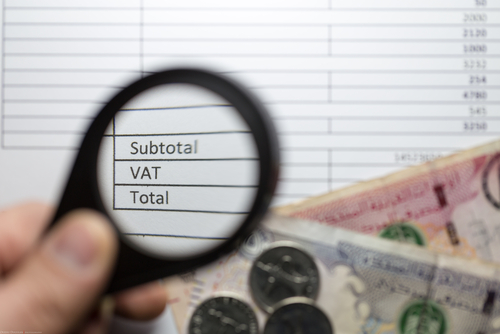South Africa ought to further investigate the benefits of a “tiered VAT system”, as opposed to zero-rating additional items. This is according to Kyle Paulsen, senior tax consultant at Mazars, who believes this could reduce the bur...
19 August 2018 · Isabelle Coetzee

South Africa ought to further investigate the benefits of a “tiered VAT system”, as opposed to zero-rating additional items.
This is according to Kyle Paulsen, senior tax consultant at Mazars, who believes this could reduce the burden on lower-income households, as well as create the necessary tax revenue.
Following concerns raised in Parliament over the increased rate of VAT in April, a panel of independent experts reviewed the list of zero-rated items, such as lentils and dried beans.
They released a report last week, recommending six additional items be zero-rated, including white bread, white flour, cake flour, sanitary products, school uniforms, and nappies.
Although Paulsen supports the panel’s report, he pointed out that they only lightly touched on the possibility of a tiered VAT system, and he believes it requires further analysis.
The cost of zero-rating
“What is often missed when establishing a VAT system is that it’s a very flexible tax. In fact, the rate of VAT can be varied down to the level of a product or service,” explained Paulsen.
One of South Africa’s closest neighbours, Lesotho, has a tiered VAT system. A VAT rate of 9% is charged on airtime as opposed to a standard VAT rate of 15% on all other items.
Similarly, the United Kingdom applies a VAT rate of 5% to sanitary products and children’s car seats, while its standard rate of VAT is 20%.
Paulsen pointed out that it’s important to look at the reasons why the VAT rate was increased in the first place – which was to raise an additional R22.9 billion in tax revenues.
“Taking an all-or-nothing approach to tax relief can be very costly. The panel estimates zero-rating the additional items will lead to a shortfall of R4 billion,” said Paulsen.
He believes by implementing the proposed zero-rating, a significant proportion of the additional tax revenues will be lost.
“The trade-off of this loss compared to the benefit of adjusting the VAT levied on the proposed products may be somewhat minimised by implementing a reduced, as opposed to a zero, VAT rate,” said Paulsen.
If it is decided to further investigate a tiered VAT system, the associated administrative burden of its implementation would have to be considered.
“Our VAT vendors would need to be given sufficient time to update their systems, and SARS would need to adequately prepare for this more complex VAT system,” Paulsen explained.
Excluding poultry and baby formula
Besides touching on a tiered VAT system, the panel also recommended nutritional support programmes, free provision of sanitary products, and additional social grants as alternatives to zero-rating.
In terms of their choice in products, the panel considered including poultry and baby formula to their list. However, the panel decided against both of these products in the end.
Paulsen believes the following questions should be asked before deciding whether a product should be zero-rated or not:
Paulsen explained that poultry was excluded from the final recommendation due to the panel being unable to answer “yes” to questions 2 and 3.
Regarding the exclusion of baby formula, Paulsen was less convinced by the panel’s decision.
“I feel that with proper education the risks, such as mixing baby formula with unclean water and over-dilution leading to malnutrition, could be minimised,” said Paulsen.
However, he believes this would be better addressed by distributing baby formula to qualifying families through a form of welfare or grant distribution, as opposed to promoting access through the implementation of a zero-rating.
Free tool

info@justmoney.co.za
4th Floor, Mutual Park, Jan Smuts Drive,
Pinelands, Cape Town, 7405
© Copyright 2009 - 2025 · Powered by NCRCB29
Terms & Conditions
·
Privacy Policy
·
PAIA Manual
View your total debt balance and accounts, get a free debt assessment, apply for a personal loan, and receive unlimited access to a coach – all for FREE with JustMoney.